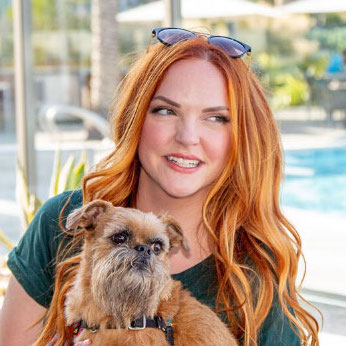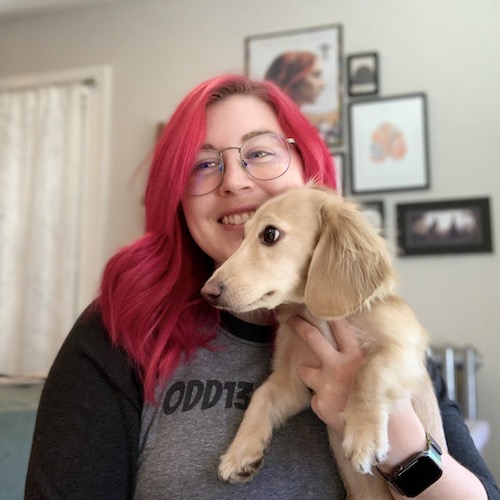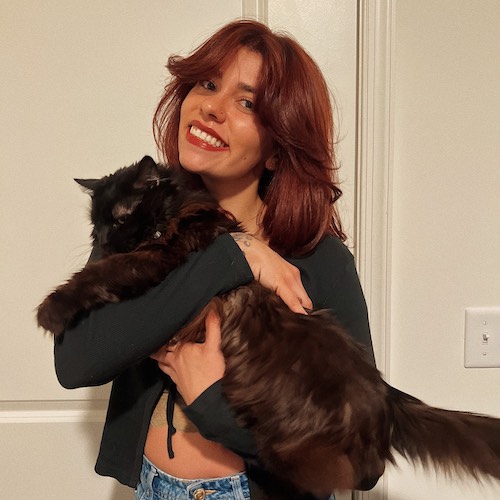Veterinary Medicine of today and tomorrow does not look like that of decades past. We are in the middle of a significant generational, technological, and societal shift.
Millennials and Gen Z are the predominant demographic of pet owners, employees, students, and businesses. Our industry must proudly and compassionately pass the torch.
Are we sure the 44% of veterinary technicians in their 20s are being equipped and empowered? Is an entire generation of veterinarians are nearing retirement ready to pass the baton?
To ensure the continued success of our profession, we must empower the next generation to evolve, operate, and lead our veterinary businesses successfully.
3 Ways to Empower the Next Generation of Veterinary Staff
1. Create safe environments for people to learn & speak up.
“In healthier work environments where help-seeking is encouraged,” Addie, CEO of MentorVet notes, “we have happier people which will lead to increased productivity, increased retention of veterinarians within the profession, better patient care, and a thriving veterinary profession.”
When people feel safe, they’ll feel comfortable speaking up. And, honestly, that feedback will not always be sunshine and rainbows.
You must take good feedback and bad feedback in the same stride — and actively work to improve the bad. For people to continue opening up, making suggestions, and working to improve the practice, they have to see management working on the things that aren’t as good.
When receiving feedback, you can’t become defensive. Listen and truly work to understand the root of the problem and the desired outcome. And, give status updates and check-in as things change and improve.
Want to be intentional about your practice culture? Check out rally.
2. Provide training & support for all levels of employees.
“A team’s culture will thrive when everyone gets to experience growth in their careers,” says Danielle Lambert, CEO of The Snout Group. “Uplifting the next generation of vet med isn’t impossible, but it requires a little ingenuity, creativity, and bravery!”
It’s literally in the veterinarian’s oath.
Growth, improvement, and increasing knowledge are life-long processes. So, we should encourage our employees to better themselves and improve their skills.
But, just “encouraging” doesn’t cut it. We must provide and make space for these opportunities, and do things like:
- Sponsor (and enforce) time-off for CE
- Offer mentorship/sponsorship opportunities
- Bring in experts for talks and trainings
- Build out internal training teams and programs
3. Offer personalized mentorship.
“Providing mentorship for early-career professionals is vital for creating a healthier future for veterinary medicine,” Addie remarks. “Supportive mentors will support and model vulnerability and inclusivity in the workplace, so mentees feel comfortable bringing their authentic selves into the workplace.”
Mentorship is a great way to:
- upskill your employees
- encourage collaboration
- practice vulnerability
- foster deep interpersonal bonds
- improve employee engagement
- drive business performance
Mentoring isn’t just about the skills you possess, it’s about how you handle and act in tough situations. And you can have more than one mentor or mentee at a time! The only requirement for being a mentor is you must simply be more skilled or knowledgeable than the mentee on a particular topic or skill.
Get creative in how you implement this in practice! Know your team member’s strengths and interests, and empower them to share their knowledge and skill with other team members.
Want to explore more practical tips?
Check out the section on empowering & upskilling in The Ultimate Guide for Awesome Culture in Veterinary Medicine.
Want to share some of your favorite practical tips?
Collaborate on an article with us! (Email sara@hound.vet for details.)
From the Experts
From Addie Reinhard, Founder & CEO @ MentorVet:
"Research has shown that, among all veterinarians, our early-career veterinarians have the highest levels of stress and burnout and the lowest levels of wellbeing. Providing mentorship, support, training, and resources for our early-career professionals is vital for creating a healthier future for veterinary medicine. Supportive mentors will support and model vulnerability and inclusivity in the workplace, so mentees feel comfortable bringing their authentic selves into the workplace.
By creating safe spaces and empowering individuals to speak up if they are feeling stressed or overwhelmed, we can begin to break down the stigma surrounding help-seeking. Scheduling regular check-ins and listening to the needs of our early-career veterinarians can begin to open up these conversations. Adapting your mentorship to the individual needs of each mentee will put them on a path for success in their career.
In these healthier work environments where help-seeking is encouraged, we have happier people which will lead to increased productivity, increased retention of veterinarians within the profession, better patient care, and a thriving veterinary profession."
From Danielle Lambert, CEO @ The Snout Group & Snout School:
"I’m a strong believer in making the path easier for those behind you. I don’t support hazing people because it is what you endured. When considering how we can do this for the next-gen of veterinary professionals, there are a few things we can consider.
Paying a living wage to everyone in vet med - no matter their role, status, or seniority - is a key place to start. People have the chance to flourish when they aren’t burdened with financial concerns. Imagine how that energy could help drive the culture and success of a business. It’s powerful. Addressing barriers, like systemic racism, is equally relevant.
From there, finding ways to give people in all roles opportunities for growth is massive. Better vet tech utilization improved mentorship for managers, and paths toward practice ownership are just a few suggestions. A team’s culture will thrive when everyone gets to experience growth in their careers.
Uplifting the next-gen of vet med isn’t impossible, but it requires a little ingenuity, creativity, and bravery!"
From Danielle Alleman, Founder @ Empathos Veterinary Wellness:
"I think in order to empower the next generation in Vet Med, we need to show the people that anyone belongs in the profession, and everyone is welcome. No matter someone’s age, race, gender, abilities, sexual orientation, career goals, or idea of what work-life balance looks like - it should not be a barrier to being a part of our profession. I think this starts with amplifying voices in the veterinary community that tell a story of diversity. More people need to see examples of people who look like them, whether that’s from a personal or professional standpoint.
The only way to move this profession forward is if we have a culture of innovation, inclusivity, and open-mindedness. The more we show the next generation that there is room for them at the table, the more new ideas, diversity, and sustainability we can find for ourselves and others."





.jpg)

.gif)


